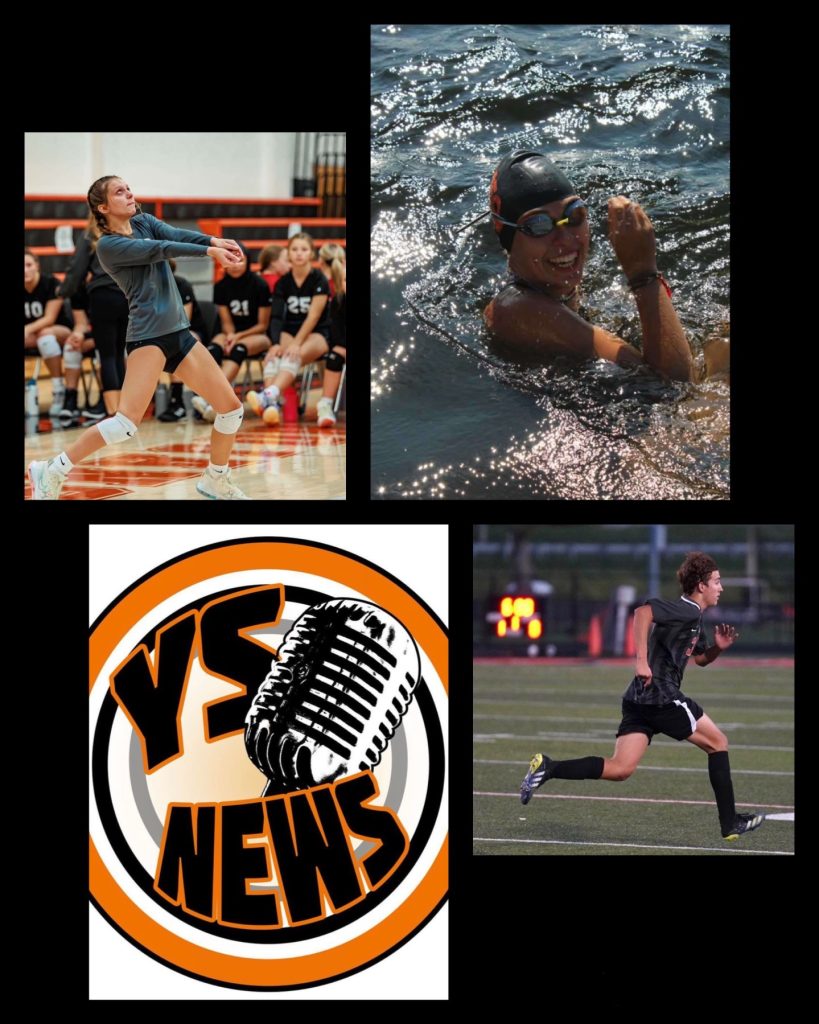Student athletes experience burnout

By Greenleigh Beaghan and Amaya Miller
Sophomore Chase Gerber has been playing soccer since elementary school. He plays for York Suburban and for a club team. Playing the same sport almost all year was hard for him as a freshman.
“I’d go from playing soccer at the school, practicing every day a week then going to play club soccer. And it was just a lot.”
Chase had experienced athletic burnout. He explains what that term means to him.
“Athletic burnout means that people play a sport too much, and it consumes too much of their time. They eventually lose their passion for the sport that they once loved playing.”
Senior Lena Englerth can relate. They’re on the high school swim team. They swim for one hour before school and for over two hours after school every day. They’ve also experienced burnout.
“Right before counties last year, I was pushing myself every morning and every afternoon and then trying to keep up with schoolwork at the same time. I felt like I was doing a lot.”
But burnout means different things to different athletes.
Freshman Kai Pinto plays volleyball for the high school. She shares her definition.
“I think that athletic burnout is when an athlete doesn’t really feel supported, and they don’t really want to play their sport anymore.”
She says she has experienced burnout this past season. As a defensive player, she feels like she doesn’t hear a lot of compliments even when she does play well.
“I don’t get a lot of telling me I’m doing good or anything like that from my coach, because it’s just what’s expected of me. So I felt like I wasn’t good enough. And I felt like I wasn’t doing good enough. And I just didn’t really want to play anymore.”
Kai says she never told her coach how she felt even though she knows her coach would’ve reassured her.
Lena says they also reach a point every season when they feel so burnt out that they consider quitting. They explain why they never tell their coach, either.
“I feel some sense of needing to be the best that I can be for my coach. I don’t want to let them down.”
Mrs. Weaver coaches girls basketball for York Suburban. She says she can normally tell when her players start to burn out. She thinks that coaches should be able to recognize these signs even if their athletes don’t share how they’re feeling.
“I think you can see the fatigue sometimes on their face, you can see the mental stress. But I also think you can see it if you know your student athletes when they kind of stop showing up to things.”
She also shares what coaches can do if they notice these signs in their players.
“We have a great connection with WellSpan for our athletic department, and I know they offer some classes for athletes and parents too, but just making them aware that there’s avenues to seek out when they are feeling stressed, and then just making sure all of our coaches are open to communicating and listening to the student athletes and what they really need.”
Lena agrees.
“I think they need to make it more normal to express how it’s okay to feel burnt out.”
Even though Chase, Lena, and Kai have felt burnout, they continue to play and rekindle their love for their sport. Kai has a message for other students who have felt this way.
“Just because you’re experiencing this doesn’t mean it won’t get better.”
I’m Greenleigh Beaghan, and I’m Amaya Miller. This is Trojan News.
